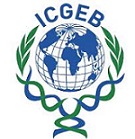International Center for Genetic Engineering and Biotechnology

Research grants in molecular biology and biotechnology, with application in fields that include agriculture and environment
Principal Office: International
The International Center for Genetic Engineering and Biotechnology (ICGEB) is part of the United Nations system. The ICGEB is dedicated to research and capacity building in life sciences for the benefit of developing countries.
The Center contributes advanced research and training in molecular biology and biotechnology in the basic sciences, human healthcare, industrial and agricultural biotechnology, and environmental bioremediation.
Grant Programs for Agriculture, Energy, Environment, Natural Resources
1 – ICGEB Research Grants. The ICGEB makes funding available through the Collaborative Research Program – ICGEB Research Grants. Grants support the creation of research facilities in promising institutes; promote training of young scientists; and develop new research programs of specific interest in participating countries. Grants support research in fields that include (among others):
- Biomedicine;
- Crop improvement;
- Environmental protection and remediation; and
- Biopharmaceuticals and biopesticide production.
Grantees are individuals who hold positions at universities and research institutes in ICGEB’s participating countries (i.e., Member States).
The research program includes a special category of grants to fund young researchers (through age 40) with an outstanding track record who have spent a minimum of two years abroad, and who have recently returned to an ICGEB Member State to establish their own independent laboratories.
Grants are up to €25 thousand per year for projects of up to three years.
APPLICATION: ICGEB makes annual calls for grant proposals. The website posts guidelines, application forms, and a calendar deadline for receiving proposals.
Each Member State in ICGEB may submit up to three standard research proposals, and up to two early-career return applications, per funding round. Proposals are prepared and submitted in English. Each proposal needs to be endorsed by the applicant’s institution, and by ICGEB’s Liaison Officer in the participating country.
2 – ICGEB Fellowships. The Arturo Falaschi ICGEB Fellowships program offers long and short-term fellowships for scientists who are nationals of ICGEB Member States to perform research in Trieste, New Delhi or Cape Town.
APPLICATION: PhD fellowships, postdoctoral fellowships, and short-term fellowships each have fixed annual application deadlines (some multiple per year). The website provides guidelines and an application form for each fellowship.
Grant Programs for Agriculture, Energy, Environment, Natural Resources
The following developing countries are Member States in ICGEB, using the regional geographic structure of the Terra Viva Grants Directory.
Southeast Asia and Pacific Islands: Malaysia, Vietnam
East Asia: China
South Asia: Bangladesh, Bhutan, India, Pakistan, Sri Lanka
Eurasia and Central Asia: Afghanistan, Iran, Kyrgyzstan, Turkey
Eastern Europe and Russia: Bosnia and Herzegovina, Macedonia, Montenegro, Russia, Serbia,
Middle East and North Africa: Algeria, Egypt, Iraq, Jordan, Kuwait, Libya, Morocco, Qatar, Saudi Arabia, Syria, Tunisia, United Arab Emirates
Sub-Saharan Africa: Burkina Faso, Burundi, Cameroon, Cote d’Ivoire, Eritrea, Kenya, Liberia, Mauritius, Namibia, Nigeria, Senegal, South Africa, Sudan, Tanzania
Latin America and Caribbean: Argentina, Brazil, Chile, Colombia, Costa Rica, Cuba, Ecuador, Mexico, Panama, Peru, Trinidad and Tobago, Uruguay, Venezuela
ICGEB provides data about its cumulative grant making since 1988.
ICGEB provides complete information about its facilities in Trieste (international headquarters), New Delhi, and Cape Town.
The website explains how research institutions in ICGEB’s member countries can apply to become Affiliated Centers.
ICGEB also provides information on how to write an ICGEB grant proposal.
